Tensions build around Colten Boushie case as trial nears
Second-degree murder trial in Saskatchewan could have fallout for reconciliation in Canada

A heavy police presenceis expected to return to the Saskatchewan town of Battlefordwhena high-stakes second-degree murder trial begins on Monday.
The death of 22-year-old Colten Boushie is inflaming tensions that have existed for years between the community's Indigenous populations and rural landowners.
"This trial that they are having is re-opening wounds," says Alvin Baptiste as he stands next to the isolated grave of Boushie, his nephew, on the Red Pheasant First Nation.
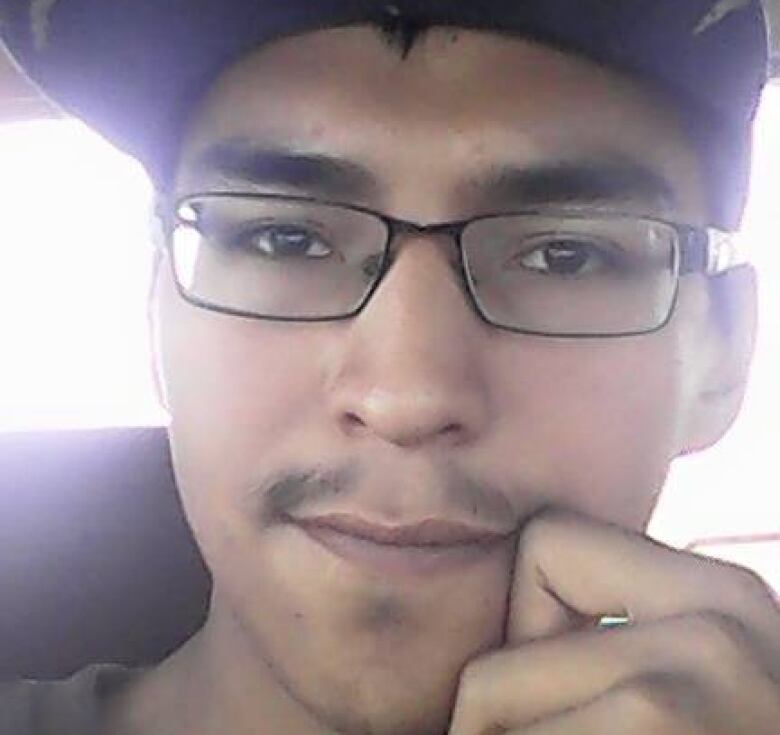
"How they deal with Aboriginals in the justice system and how they deal with white people in the justice system ... First Nations people know that we do not get justice in the court," he says.
- Watch:The National Racial tension front and centre at Colten Boushie trial
- Boushie homicide case expected to highlight racial tension
- CBC Saskatchewan podcast: Boushie
Boushie, a young Indigenous man, was shot and killed shortly after driving onto farmer Gerald Stanley's property with a group of friends near Biggar, Sask., in August 2016.
Stanley was charged with second degree murder. He has pleaded not guilty.
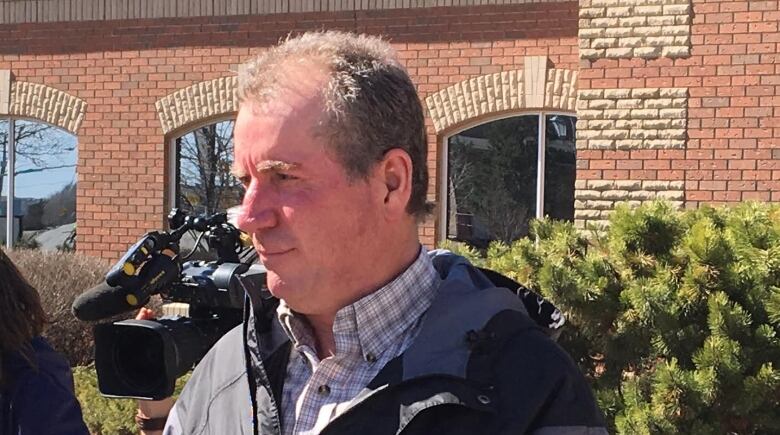
Boushie was living on Red Pheasant, a reserve in theNorth Battlefordregion. A number of racist, offensive online messages after his death sparked a hate crime investigation.
Things got so heated that Premier Brad Wall stepped up, calling for an end to the racist comments.
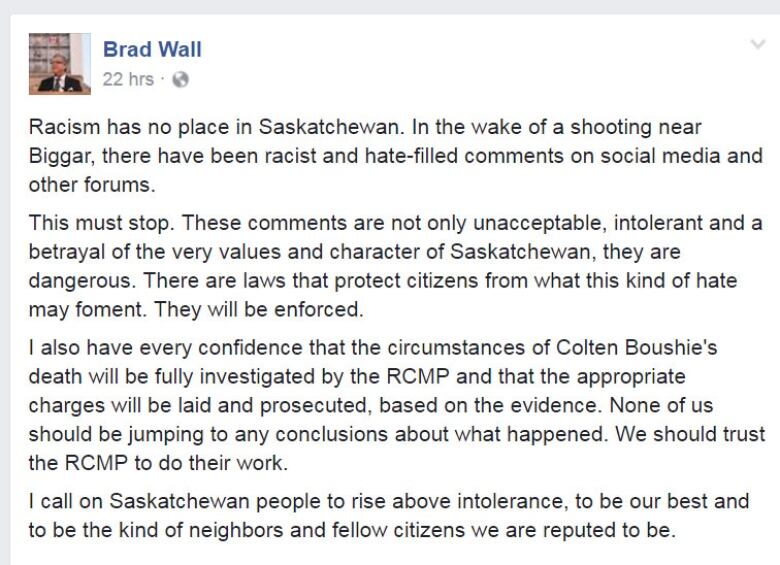
Protesters also regularly attended Stanley's pre-trial hearings, demanding justice for Boushie. Stanley was escorted into court with heavy police protection.
Indigenous journalist Doug Cuthand has been following the case and will be covering the trial. He says that no matter how the jury decides based on the evidence, there could be problems for Saskatchewan.
"If Mr. Stanley is found not guilty, there's going to be an uproar in the Indian community," he says. "If he's found guilty, there's going to be more fear and more hatred on the other side. So this is a case to watch, but it's also a case that's going to have very bad implications."
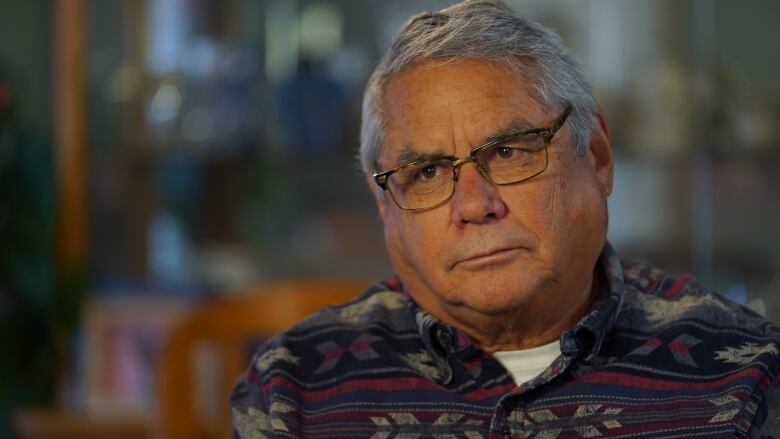
"There's almost like two solitudes living together there, and neither side trusts each other," Cuthand says. "I think this case is probably the most polarized of all the ones I've seen."
The province has made progress in bridging the divides and addressing racist attitudes in recent years, with some reserves building productive and positive relationships with the communities nearby. But Cuthand says there are fears this could wane based on the outcome of this trial.
Chris Murphy, a lawyer representing Boushie's mother, agrees the trial represents the elements of a larger conversation about reconciliation that is going on across Canada.
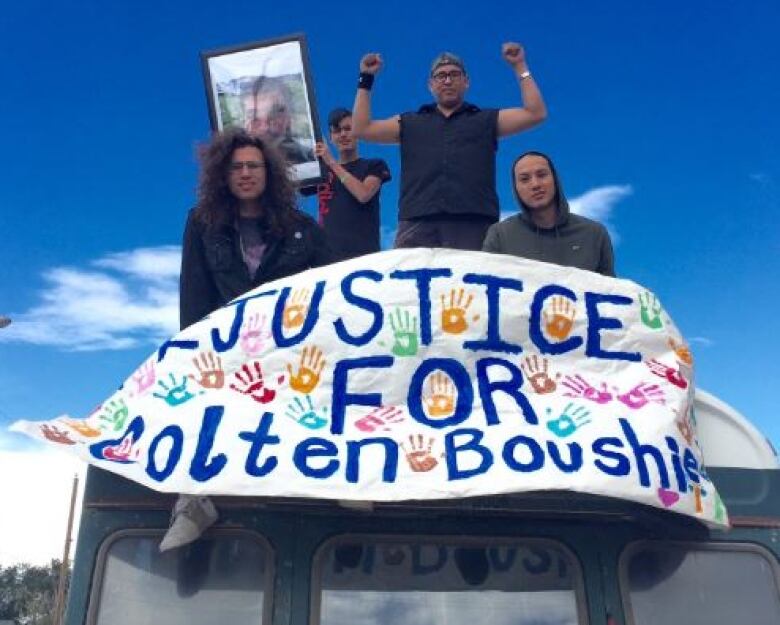
Despite the attention the case is attracting, Boushie's uncle says he is hoping for answers but doesn't necessarily expect to get them.
"It's a two-way system. You know how they deal with the Aboriginals in the justice system and how they deal with white people in the justice system," says Alvin Baptiste. "That is why we stand up."
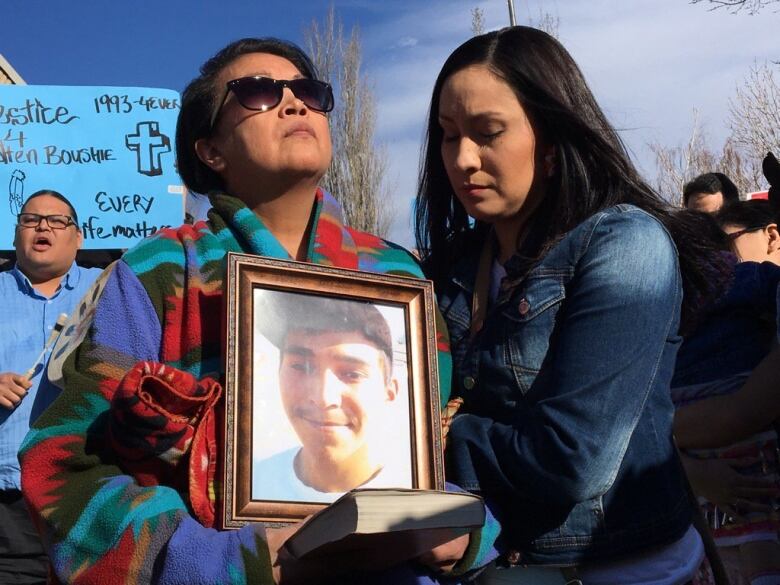
However, several disagreed with Baptiste's view, saying they have faith in the justice system and its ability to reach a decision based on the facts of the case.
In the end, Baptiste says, he just wants to know what happened to his nephew. "My heart is heavy once again. Hopefully my family will heal after this trial."













_(720p).jpg)


 OFFICIAL HD MUSIC VIDEO.jpg)
.jpg)



























































































